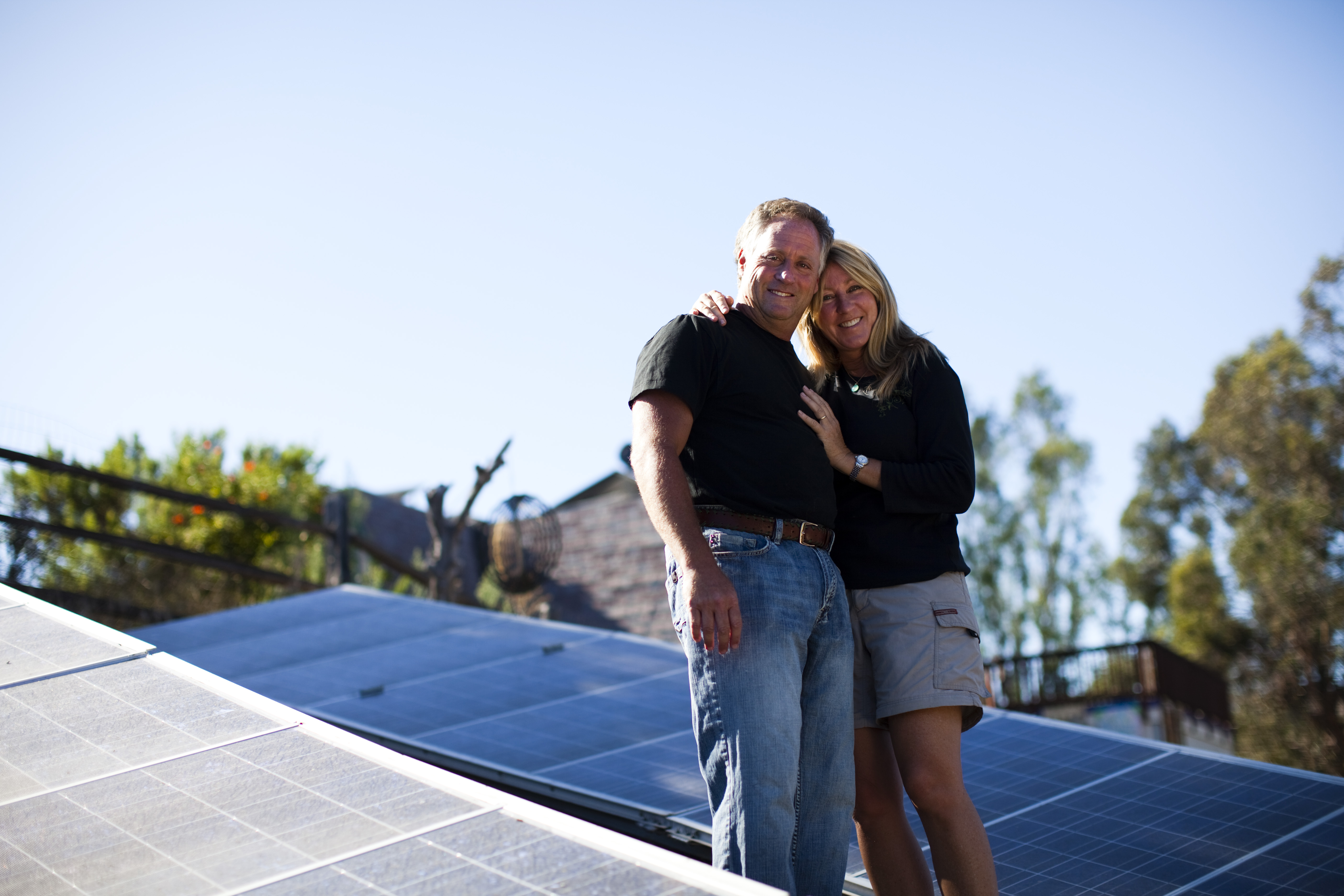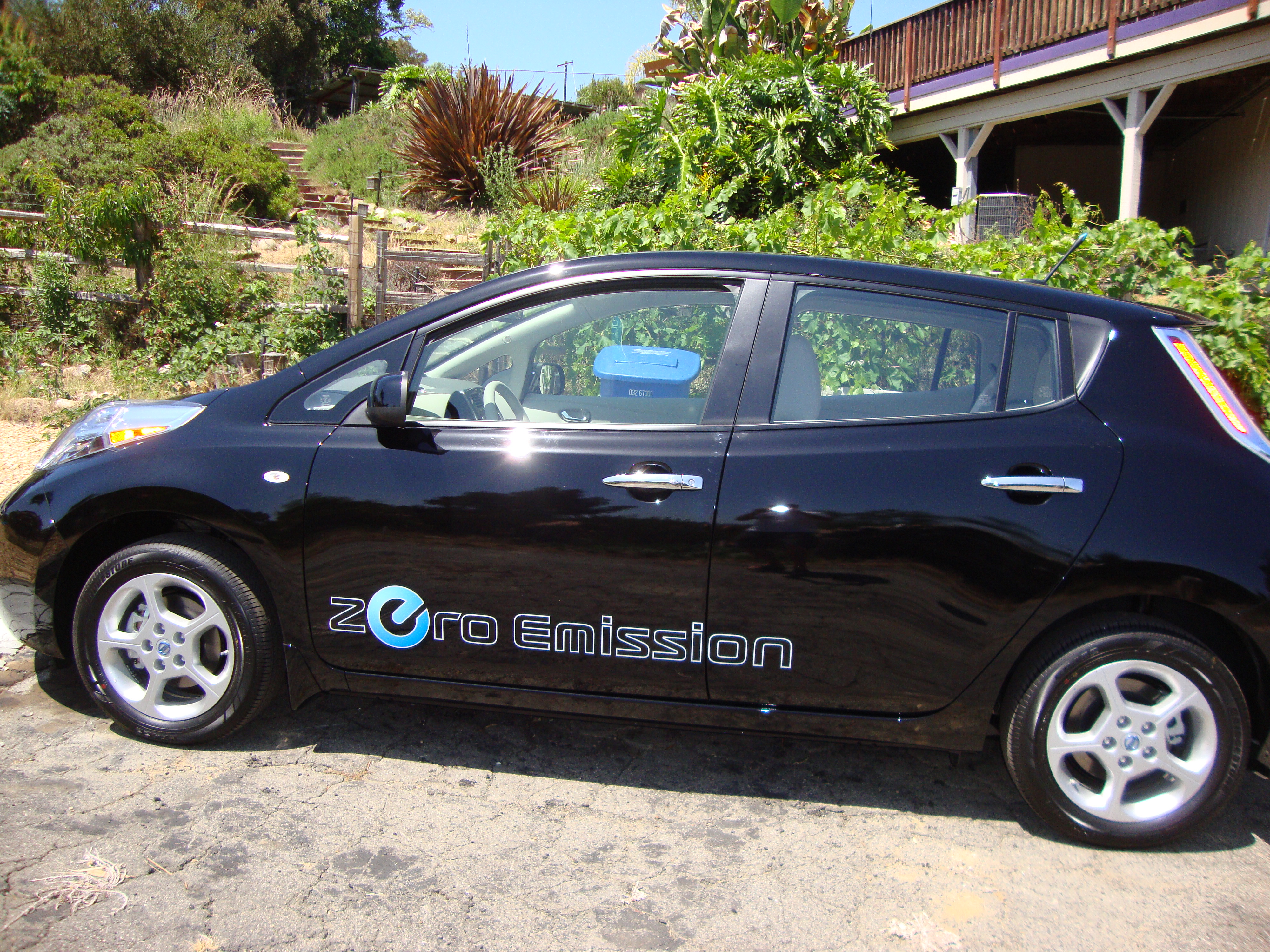18
FEB
2013
Renault-Nissan Alliance Team
.
.
Guest post: A solar car? This Nissan LEAF owner already has one!

Entrepreneur and environmentalist Rob Wilder uses solar energy from his home to power his zero-emission Nissan LEAF and explains how other Renault and Nissan electric vehicle owners can do the same thing.
"I love cars: always have, always will! When they get our whole family where we need to be, are great driving fun - plus even save us $$ long term - I love them even more!
Note then my wife & I have now been living with, and hauling our kids around in our affordable and spry 4-door Nissan LEAF. A year and a half on this experience has convincingly shown us great reasons to love a fresh option for your next car: go pure-electric.
For many like us, there’s an opportunity too to supply not just any old sort of electricity, but to provide clean abundant solar to power your Nissan LEAF.
One way to think about it is the savings. Recently, I saw a report claiming an average American may spend some $100,000+ over their 50 years of driving, just for gasoline. That fuel cost assumes 12,000 miles per year; gas at $3.50 gallon and near current fleet average of 20 MPG, this means 600 gallons, or $2,100 per year – over 50 years.
 Sure, one can improve on those fuel costs. For example a better than 20 MPG car may make fantastic sense. But an electric car will still cost only a small fraction of that amount for its fuel, even without using solar.
Sure, one can improve on those fuel costs. For example a better than 20 MPG car may make fantastic sense. But an electric car will still cost only a small fraction of that amount for its fuel, even without using solar.
Consider then on Nissan’s LEAF today and other electric vehicles including Renault’s Fluence Z.E., Kangoo Z.E., there’s the chance to get into electrics … to use solar power as fuel - and save money to boot!
For example our solar system here that cost $15,000 after rebates, is now past payback. This means we power our car and much of our home… for free! Given costs we avoided in not paying for gasoline, and not buying power for our home, we reached payback after about 8 years. We are now getting our fuel from Mr. Sun and for free!
That original $15,000 has also been fully amortized, so this solar system is today free for us. Fuel we get daily for our LEAF is delivered by the sun, without charge. Compared to gas, I simply think this makes far greater sense and only gets better over our lives.
 Having bought the Nissan LEAF and loving it for our family, it’s hard to imagine getting another car that doesn’t have a plug attached. Indeed it’s a car we ‘wrestle over’ each day for who gets to drive it! Fun, spacious, affordable… so what’s not to like??
Having bought the Nissan LEAF and loving it for our family, it’s hard to imagine getting another car that doesn’t have a plug attached. Indeed it’s a car we ‘wrestle over’ each day for who gets to drive it! Fun, spacious, affordable… so what’s not to like??
The Renault-Nissan Alliance deserves enormous credit in my book for making such a huge bet on electrics. It did so when other carmakers were unwilling, and now deservedly is earning first-mover advantage as a leader in affordable electric cars and vans.
As my wife says of our much-loved Nissan LEAF, it’s better than she ever thought it would be. Kudos Renault-Nissan!"
Dr. Rob Wilder
print
Tweet






Comments
Can I assume that you are grid connected and that, if the solar does not produce the electricity, it comes from the grid. Or are you off grid and if so how does the leaf cope with fluctuating voltage?
That's correct and so like the great majority of solar-powered homes (I'd guess), I am grid connected here.
There's a few reasons for that ...
One is by using the grid as in essence a big battery, each extra electron generated during daytime by my solar panels and put into the grid - is worth something like two electrons that I must draw from the grid at night.
That's because in Summer I get 'paid' around 27 cents per kWh, and at night I pay only around half that per kWh.
There's sound economic reasons for this. For instance Utilities must pay more during peak demand for power in daytime - while idle plants at night can make/sell power cheaply. Solar helpfully too lessens a need to build costly peaker plants, and it is load following by producing power on sunny days when power demand is high.
Of course infill in-basin distributed generation solar on roofs makes the grid more resilient, benefiting Utilities too. And of course it carries many environmental and societal benefits.
If I were running say a small wind generator to power the car, then I imagine issues like low-voltage ride through could arise. Or fluctuations in solar power (clouds etc) could present an issue, without proper power conditioning. But once energy is stored in say banks of batteries, or via hydrogen to be used in a fuel cell, or in flywheels or future capacitors, etc, then that power conditioning issue should go away.
Using the grid like we do is not a problem for the Utility. (It helps them - but surely not their business model since it devolves control away, and lessens need for Transmission and Distribution infrastructure - which is a main source now of their revenue). That said I quite like that we are providing benefits to the community and our neighbors.
With solar still well under 5% of power generated by we on grid, the Utility can easily handle homes generating clean power. In industrial Germany a far higher percentage now comes from wind and solar. But because distributed solar wrests dominion and control away from established Utilities, they do of course continue to fight it ... In the end though, as EVs are shown to be a better choice, I think powering them by solar will become a natural choice.
Gotta love being able to buy new EVs like the Leaf, for under $20K...
Thanks!
Regards,
Rob
Post new comment